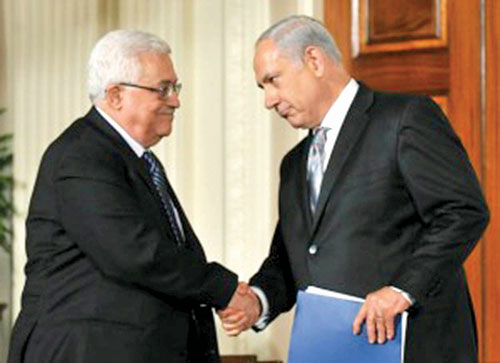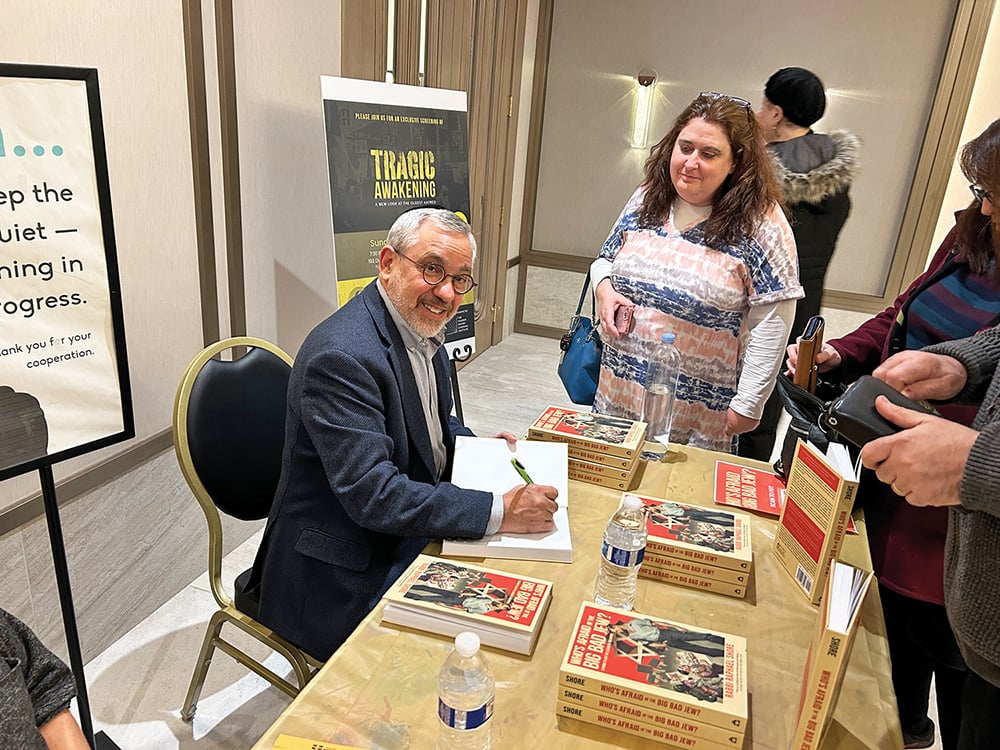.jpg)
Times of Israel—Athis weekly cabinet meeting Sunday morning, Prime Minister Benjamin Netanyahu discussed terms regarding the newly announced talks between Israel and the Palestinians.
“These will not be easy negotiations, but we will enter into them with integrity, sincerity and the hope that this process will be conducted responsibly, seriously and substantively—and, I must say, at least in the opening stages, discreetly,” he told his Cabinet on Sunday. “Throughout this process, I will strongly uphold, as I already have, the security needs of the State of Israel and other vital interests.”
Netanyahu’s comments echoed those of U.S. Secretary of State John Kerry, who promised discretion while announcing new talks on Friday. A number of leaks have already added some confusion, with Palestinian officials claiming Kerry promised them in writing that the talks would be conducted based on the 1967 lines, which Israel has denied.
“The agreement is still in the process of being formalized, so we are absolutely not going to talk about any of the elements now,” Kerry said, adding that “the people who know the facts are not talking about them. The parties have agreed that I will be the only one making further comments about this.”Yet the very next day, International Relations Minister Yuval Steinitz of Likudannounced that Israel had agreed to release a large number of veteran Palestinian prisoners, many being held for “serious” crimes, in exchange for the talks.
Characterizing the resumption of talks, which have been on hold since 2010, Netanyahu said any peace deal would have to be approved by national referendum.“I don’t think these decisions can be made, if there is a deal, by one government or another, but need to be brought as a national decision,” he said.He added that his main guiding principles will be to maintain a Jewish majority in Israel and to avoid a future Palestinian state becoming an Iranian-backed “terror state.”
Many top officials in Jerusalem have reacted with optimism to the resumption of talks after the hiatus.
On Saturday night, President Shimon Peres called Palestinian Authority President Mahmoud Abbas to offer his good wishes for the Ramadan holiday. Peres praised Abbas for the “courageous and historic decision” to return to the negotiating table.“There is no alternative to peace, not for us and not for you,” Peres said, according to the President’s Residence. “Don’t listen to the skeptics; you’ve done the right thing. We want to see the two peoples taking the right path.”
Peres also praised Netanyahu, who “understands this is a historic calling.” Referencing Kerry he added, “The Americans fulfilled an important and central role in our return to the negotiations. Kerry’s work was very professional. He is a wise man, honest and serious in his intentions.”
Abbas told Peres it was time “to continue the peace process we began so many years ago, and to complete it.”
“There is hope,” Abbas told Peres. “We’ll continue to build the future, and I hope we’ll arrive at a good end. I hope we’ll see progress and that we’ll gain an independent state that enjoys neighborly relations and lives in peace alongside Israel.”
Peres haslong urged Abbas to return to peace talks. The Sunday Times reported that the two met in secret in May in Amman, Jordan, where Peres reportedly tried to convince Abbas that Jewish settlers could live in a future Palestinian state if they agreed to accept its sovereignty.
On Monday, Abbas said he, too, would hold a general referendum among his population over any final status agreement that might be reached with Israel before signing on the dotted line.
According to a report broadcast on the Hebrew-language Voice of Israel radio, Abbas said Monday that any agreement reached with Israel would be put to a vote before the Ramallah government would make any final deal with Israel.
Israeli sources say the talks are set to last from 9 to 12 months. Israel will be represented by Justice Minister TzipiLivni and Netanyahu envoy Yitzhak Molcho and the Palestinians by veteran negotiator SaebErekat. Kerry said last Friday he expected the talks to resume in Washington this week, but Israeli officials said logistics might require a further week of preparation.
If Kerry’s efforts fail, The Jordanian Al-Rai newspaper quoted Abbas as saying, “all options are open.”
Kerry has gained backing for the negotiations from the Arab League, but as concerns the actual protagonists in the peace talks there is already opposition. Hamas, deemed a terrorist group by Israel and the United States, has come out against the talks, and a majority of Netanyahu’s coalition wants a one-state solution. Beitenu’s chairman and Economics Minister Naftali Bennett and Deputy Defense Minister Danny Danon both came out against Palestinian statehood, with Bennett threatening to sabotage the upcoming coalition budget vote.
On the other hand, opposition Labor Party chairman Shelly Yachimovich said, “I hope that Prime Minister Netanyahu, who declared loud and clear that he supports the two-state solution, will make the necessary decisions…We should not just settle for a renewal of negotiations but do everything possible to work towards real accords.”
By Haviv Rettig Gur, with additional reporting from JLBC Staff












